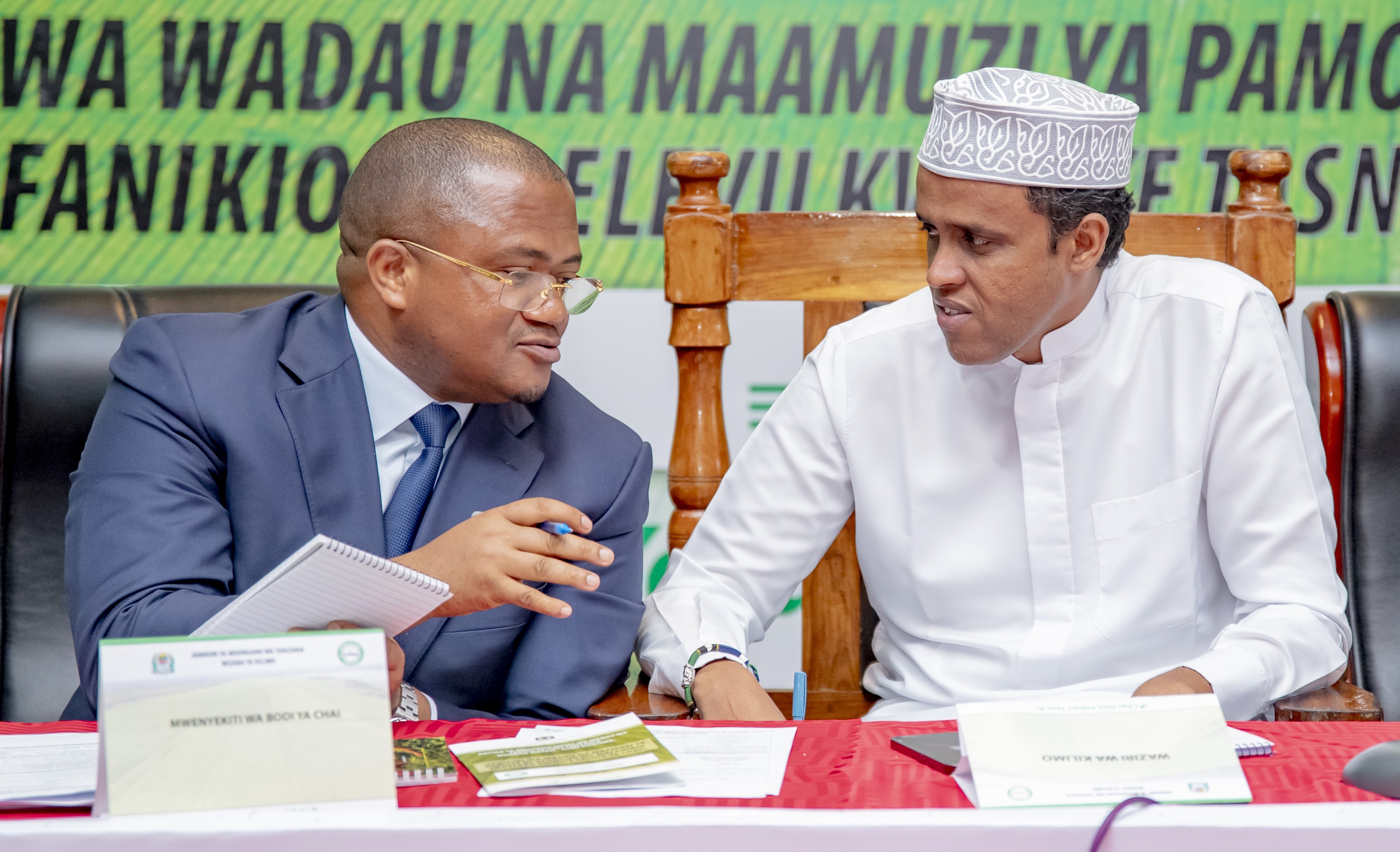How reliable internet is key to Tanzanian varsity education transformation

Left to right; Managing Director of Seacom Tanzania Limited, Joe Vipond and UDSM VC, Prof William Anangisye after signing a five-year agreement for internet provision.
What you need to know:
- The country’s higher learning institutions, like their counterparts worldwide, are awakening to the importance of robust Information Communication Technology (ICT) infrastructures in shaping the future of education.
Dar es Salaam. In the modern-day education setting, where technology has become an integral part of the learning process, reliable internet connectivity stands as the cornerstone for academic excellence globally with Tanzania inclusive, it has been stated.
The country’s higher learning institutions, like their counterparts worldwide, are awakening to the importance of robust Information Communication Technology (ICT) infrastructures in shaping the future of education.
The Covid-19 pandemic served as a catalyst, exposing vulnerabilities within the country’s educational system, particularly where internet access is concerned.
As global lockdowns forced universities to pivot to remote learning, the inadequacies in internet provision became glaringly apparent.
Many institutions in Tanzania found themselves ill-prepared to navigate the challenges of online education amid setbacks in internet connectivity as well as inadequate ICT infrastructure.
Understanding the challenges it grappled with, the University of Dar es Salaam (UDSM) on Friday, February 9, 2024 renewed the partnership it first entered with Seacom Tanzania Limited.
The partnership was struck back in 2008 and aimed at enhancing reliable internet provision across the UDSM campuses as it gears to become a “smart campus.”
The partnership that aims to make high-speed internet access available for students and staff, signals a pivotal moment in the country’s higher education transformation.
The five-year contract marks a pivotal moment for UDSM and shows the way for other universities to find ways to improve the ICT environment in order to help in the activities of sustainable access to education even during disasters.
Under the new agreement, the university, with more than 40,000 students, will witness a substantial increase in internet capacity, soaring from 155 megabits per second (STM 1) to 10 gigabits per second (STM 64).
The significance of the initiative, experts believe, extends beyond mere connectivity—it embodies a commitment to harnessing advanced technology to propel Tanzanian higher education onto the global stage.
The development also, specialists say, signifies a quantum leap in the institution's technological infrastructure, facilitating seamless connectivity across all its campuses, including those situated outside Dar es Salaam.
Building a smart campus
The UDSM Vice Chancellor, Prof William Anangisye, received the development as a catalyst for the realisation of the university's vision of a smart campus.
"With high-speed internet, we are poised to revolutionise teaching, research, and public services, propelling UDSM towards greater effectiveness and efficiency," he said.
This comes at a time when a report was tabled in Parliament on Wednesday, February 7, 2024, showing how shortage of staff hurts the leading public universities in the country.
The UDSM and the University of Dodoma (UDOM) being the most affected with the veteran higher learning institution facing the shortage of 2,479 members of staff.
The UDOM, which was established slightly less than 20 years ago, was grappling with the shortage of 856 staff members.
It is feared the shortage could negatively impact the learning processes because a significant number of those missing were academic staff.
But experts see the development at the University of Dar es Salaam as a bridge to the existing gap that must have contributed significantly to production of half-baked graduates, an embattled situation in the country.
Education experts worldwide recognise the pivotal role of connectivity in fostering academic success, including, Dr Amos Majure, who highlights the imperative need of investing in ICT infrastructure to address staffing shortages in universities located in the country.
"The shortage of lecturers has been a very big issue in the country, but it can be solved easily if all universities with this challenge decide to invest in ICT and enter into partnerships with internet companies like what UDSM has done," said the education consultant.
Dr Majure's insight reiterates the interconnectedness of internet accessibility and staffing issues, advocating for a holistic approach towards addressing educational challenges.
Moreover, the importance of technology in shaping global rankings for universities cannot be overstated.
An ICT expert based in Dar es Salaam, Dr Ebenezeri Anthony asserts words that resonate with the broader discourse surrounding the role of technology in driving academic excellence and international competitiveness.
"By embracing technological advancements and forging strategic partnerships, Tanzanian universities can chart a course towards a future where quality education transcends boundaries, empowering students and faculties to excel on the global stage," he says.
Seacom Tanzania Ltd Managing Director, Joe Vipond said his company was committed to supporting UDSM's quest for educational excellence.
"Education in the digital age hinges on robust infrastructures like high-speed internet. Our partnership with UDSM stresses our dedication to empowering institutions with the tools they need to thrive in a globally connected world," he said.
The agreement further indicates a significant milestone in Tanzania's higher education landscape, according to Dr Lucy Kabona of Mzumbe University.
She says it represents a strategic investment in the future of education, laying the foundation for transformative learning experiences.
“As the country's oldest university, UDSM sets a precedent for other institutions to prioritise internet accessibility and embrace technological advancements.”
“By leveraging technology and forging strategic partnerships, Tanzanian universities can elevate their global presence and empower students and faculties to thrive in the digital age,” she notes.





